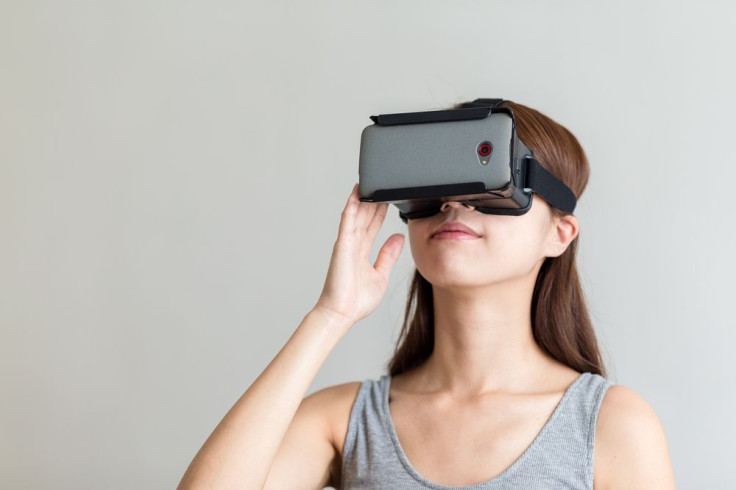Virtual Reality, Used As Exposure Therapy Following Detox, Helps Reduce Cravings For Alcohol

Virtual reality therapy has been used to successfully treat phobias and post-traumatic stress disorder. Now, a similar treatment may help people with alcohol dependence, say researchers from Chung-Ang University Hospital in Seoul, South Korea. Following detox and virtual reality, alcoholic participants experienced a reduction in their cravings for a drink, this small-scale study proved.
Virtual reality treatments work as a form of exposure therapy, commonly used for patients with anxiety disorders. Through repeated contact — in a safe and controlled environment — with situations or stimuli that usually trigger fear and dread, a patient learns how to better manage real-life encounters with anxiety-producing conditions. The underlying theory behind the treatment is that recurring contact with whatever is painful or difficult helps reduce its power to cause distress.
To study the use of virtual reality exposure therapy for alcoholics, Dr. Doug Hyun Han, senior researcher, and his colleagues recruited 12 patients already in treatment programs for dependence.
All of the patients began the study by undergoing a series of scans so that the researchers might study their brain metabolism. Surprisingly, when compared to a group of healthy volunteers, the alcohol-dependent patients demonstrated faster metabolism in their brains' limbic circuit — which, Han says, indicates a heightened sensitivity to stimuli (including alcohol).
After completing a week-long detox, the 12 study participants underwent 10 sessions of virtual-reality therapy. These twice-a-week sessions consisted of three dissimilar virtual scenes: a relaxing environment; a high-risk situation, consisting of a restaurant where other people were drinking; and an aversive setting. In this third scene, patients found themselves surrounded by the sights, sounds, and smells of people getting sick from drinking too much alcohol.
After completing the five week program of virtual-reality therapy, the participants returned for a brain scan and once again, their results surprised the researchers. Each patient’s speedy brain metabolism had slowed. According to Han, this suggests a dampened craving for alcohol. Though he warns a larger study is needed to verify these results, he believes virtual reality treatments similar to the program designed for this study may help patients remain abstinent and avoid relapses.
“This technology is already popular in the fields of psychology and psychiatry,” Han said in a press release. He believes the treatment may be especially effective for patients with alcohol troubles because the technology places them in a real-life context and then requires their active participation.
Source: Son JH, Lee SH, Seok JW, et al. Virtual reality therapy for the treatment of alcohol dependence: A preliminary investigation with positron emission tomography/computerized tomography. Journal of Studies on Alcohol and Drugs. 2015.



























